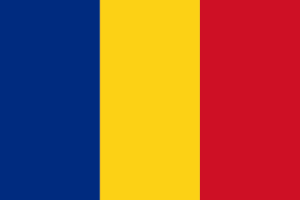The Targeting of Anti-Plagiarism Advocates

In Russia, Andrei Zaykin has been put under house arrest over allegations that he donated 1,000 ruble ($16) to an opposition leader’s anti-corruption foundation. That foundation was marked as “extremist” by Russian authorities last year and, if found guilty, he faces up to eight years in prison.
However, this is far from the first time Zaykin has angered Russian authorities. In 2013, he was one of the cofounders of the Russian anti-piracy collective Dissernet, which has since exposed plagiarism in the academic works of countless government officials at all levels.
Though the stated reason for his arrest has nothing to do with his anti-plagiarism work, it is widely believed that he was targeted in part because of it. It also explains why he is currently prohibited from using all means of communication, including the internet, during his house arrest.
Elsewhere, in Romania, journalist Emilia Şercan has similarly worked hard to expose plagiarism, having covered some 50 such cases over the past seven years.
The latest involves the nation’s Prime Minister, Nicolae Ciucă. According to Şercan, Ciucă plagiarized some 42 pages of his 2003 doctoral thesis, an accusation that he denies.
However, since Şercan published her findings in January, she’s become the victim of non-consensual pornography as 20-year-old intimate photos of her have been leaked to at least 74 different sites. Şercan has turned the images over to the police for an investigation, but claims that the criminal case appears to be making no progress.
For Şercan, this isn’t even her first attack over a story on plagiarism. In 2019, she outlined cases of plagiarism involving those in the country’s police academy resulted in death threats against her. However, in that case, two individuals were convicted and sentenced to a three-year suspended jail term.
These are just two examples of how anti-plagiarism advocates are being targeted. They are excellent examples of why those that work in academic integrity should be worried about the backlash to their work, especially when it focuses on political figures.
The Growing Problem

The issue is fairly straightforward. Throughout the world, many politicians have sought to use academic degrees as a means to power. In many places, having a PhD or other higher degree is crucial to obtaining high-level government positions.
However, often times, those politicians do not obtain their degree in an ethical manner. They often take shortcuts, in particular on their theses and dissertations. For many of those politicians, the plagiarism took place plagiarism detection tools were commonplace, making it so that the issues only come to light years or decades later.
To be clear, these allegations are often brought by or fodder for political opponents. For example, the recent Kevin Kruse plagiarism scandal was brought to light by those politically opposed to him.
However, in other cases, the work of unveiling plagiarism is less about achieving political aims and more about addressing the issue of plagiarism itself. As studies have shown, politicians that plagiarize perform worse than those that don’t. Furthermore, it’s difficult to create a culture of academic integrity when many of their nation’s leaders have careers built upon it.
This has led many, both in academia and journalism, to launch campaigns against plagiarism that are politically agnostic. These efforts have targeted and ended the careers of politicians across the political landscape.
Dissernet in Russia and VroniPlag in Germany are two such efforts. They both seek to root out plagiarism and don’t limit themselves to just political leaders. Academics, celebrities and other prominent figures are also targets.
Until recently, leaders either ignored or tolerated this kind of work. Such efforts produced unpredictable results, with some politicians losing their positions, though others held on.
Now, at least in certain countries, politicians are actively pushing back. In Romania, Ciucă was “cleared” of plagiarism through an extremely dubious process. To make matters worse, the nation’s constitutional court also issued a ruling that makes it functionally impossible to revoke a degree once it is awarded, further protecting any politicians who have obtained ill-gotten degrees. All of this is outside the attacks aimed at Şercan directly.
This comes as the country is struggling to address academic integrity issues within its educational system and is taking drastic measures to both teach and enforce ethical behavior.
The result is that anti-plagiarism advocates are increasingly being seen not as advocates for academic integrity, but as threats to those in power. This is why we’re seeing increased efforts not just to limit the challenge that they present, but to silence them outright.
Those efforts are why anti-plagiarism advocates should be worried.
Bottom Line
Currently, this is only an issue in a handful of countries, in particular Russia and over former soviet-bloc nations. However, such tactics have a way of spreading and, as more and more political leaders find their positions threatened by plagiarism allegations, may adopt them.
For decades, the work of anti-plagiarism advocates has been largely ignored by those in power. Even when successful at revoking degrees and removing politicians from prominent positions, leaders didn’t attempt to strike back. That is what is slowly changing.
Unfortunately for academics and journalists, this puts them in a difficult position. As noble as exposing plagiarism is, doing so puts them at great personal risk, especially when reporting on political figures.
It is a grim reality, but these kinds of actions have a chilling effect on reporting, making those that discover plagiarism wary about coming out publicly regarding their findings, even in nations where such backlash isn’t common or likely.
In short, the task of being an anti-plagiarism advocate just got significantly more difficulty, and not just in Russia or Romania.
Want to Reuse or Republish this Content?
If you want to feature this article in your site, classroom or elsewhere, just let us know! We usually grant permission within 24 hours.
